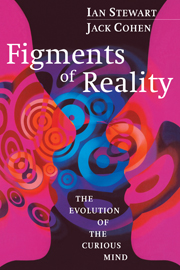Book contents
- Frontmatter
- Contents
- Preface
- Figure Acknowledgements
- Prologue
- 1 The Origins of Life
- 2 The Reductionist Nightmare
- 3 Ant Country
- 4 Winning Ways
- 5 Universals and Parochials
- 6 Neural Nests
- 7 Features Great and Small
- 8 What is it Like to be a Human?
- 9 We Wanted to Have a Chapter on Free Will, but We Decided not to, so Here It Is
- 10 Extelligence
- 11 Simplex, Complex, Multiplex
- Epilogue
- Notes
- Further Reading
- Index
11 - Simplex, Complex, Multiplex
Published online by Cambridge University Press: 11 August 2009
- Frontmatter
- Contents
- Preface
- Figure Acknowledgements
- Prologue
- 1 The Origins of Life
- 2 The Reductionist Nightmare
- 3 Ant Country
- 4 Winning Ways
- 5 Universals and Parochials
- 6 Neural Nests
- 7 Features Great and Small
- 8 What is it Like to be a Human?
- 9 We Wanted to Have a Chapter on Free Will, but We Decided not to, so Here It Is
- 10 Extelligence
- 11 Simplex, Complex, Multiplex
- Epilogue
- Notes
- Further Reading
- Index
Summary
It is well known that Albert Einstein was born in Ulm in 1879, but his family moved almost immediately to Munich where his father Hermann and his uncle Jakob set up a small engineering company. Later he went to Milan, and he studied in Zurich. It is much less well known that for a few years Jules Shloer, who was then studying mathematics but later went on to found the famous soft drink company, lived in an apartment block next to Einstein. Not far away was a corner shop, with a cramped partitioned section at the rear which served as a café. Here Einstein and Shloer would often meet, to drink coffee and talk. The shop was run by an Italian immigrant, Antonio Mezzi, and the only kind of coffee that he served was thick, dark, and enormously strong, made from beans imported from one particular Arabian village. In later life Shloer and Einstein both attributed their success to the remarkable mental clarity induced by Mr Mezzi's special coffee.
We end our journey through human mind and culture by trying to answer some of the questions that we raised in the opening chapter. How did such a peculiar animal as the human gain such a grip upon the planet? What is it that makes us the way we are? And where are we going next?
Let us first take stock.
We are genuinely remarkable members of the animal kingdom.
- Type
- Chapter
- Information
- Figments of RealityThe Evolution of the Curious Mind, pp. 271 - 300Publisher: Cambridge University PressPrint publication year: 1997



